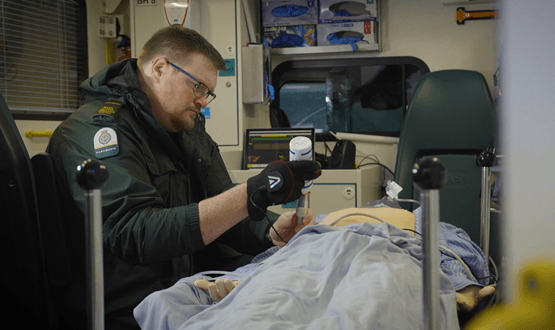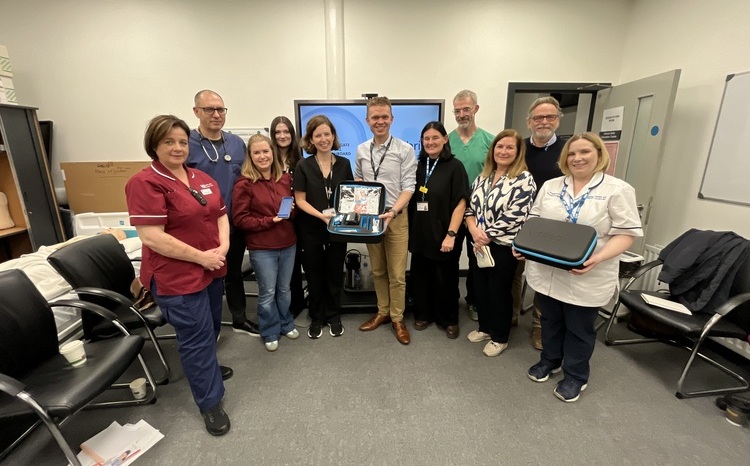Power of 5G technology in healthcare demonstrated in Birmingham
- 25 November 2019

University Hospitals Birmingham NHS Foundation Trust (UHB) and BT have demonstrated scenarios where 5G technology could provide solutions for the healthcare sector.
The demonstration, held at the Medical Devices Testing and Evaluation Centre (MD-TEC) at UHB, included a showcase of a concept of a 5G connected ambulance, provided by South Central Ambulance NHS Foundation Trust.
The technology allows clinicians to remotely assess and diagnose a patient, view medical records, vital signs and ultrasounds.
Wearing a specially-equipped VR headset, the clinician is able to visualise exactly what the paramedic sees in the ambulance.
Using a joystick, they are then able to remotely direct the paramedic in real time to perform any necessary scans, as well as get close-up footage of the wounds and injuries of a patient.
The clinician does this by speaking to the paramedic to look in a particular direction, or, in the case of a scan, sends control signals over the live 5G network to a ‘haptic’ glove worn by the paramedic.
The glove, which was first demonstrated back in June 2019, creates small vibrations that direct the paramedic’s hand to where the clinician wants the ultrasound sensor to be moved.
In addition, there is a camera in the ambulance that transmits a high definition view of the inside of the ambulance, paramedic and patient.
Dave Rosser, UHB Chief Executive, said: “We are excited by the huge potential of 5G technology and how it can help transform healthcare in the future.
“We believe it has the potential to create more efficient use of healthcare resources, particularly with regards to easing the burden on A&E services which are facing unprecedented demand.
“The characteristics of 5G mean it should provide many advantages, including speeding up diagnoses for patients and potentially reducing the number of ambulance and A&E department visits. In particular, being able to perform diagnoses remotely means a doctor or clinician could determine an appropriate care pathway without necessarily having to see someone in hospital.”
The demonstration was powered by 5G mobile technology, which was launched in Birmingham by BT earlier this year.
Fotis Karonis, CTIO and 5G executive lead for BT Enterprise, said: “Not only is 5G capable of ultrafast speeds it has much lower latency meaning there is little to no delay when transmitting data over the network.
“This means things happen in ‘real time’ so this is of significant interest to the NHS because of its potential for medical applications, such as diagnostics and preventative healthcare. This capability provides efficiency opportunities for both hospital and ambulance trusts by reducing the number of referrals into hospital and patient trips.”
“BT has a long and proud heritage of working with the NHS and we’re committed to developing technological solutions to meet some of the key challenges faced in the healthcare sector.”




